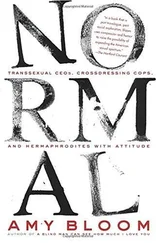After I made the phone call, I hung around the train station for a while and then I started walking home, waiting for one of the Middle Neck Road buses. It was a warm night, for May, and people were glad that summer was coming. Everyone had their front doors open. Men were smoking and drinking coffee and reading the paper, in their shirtsleeves. Women were doing the dishes, wearing their aprons. Everyone had the radio on.
Iris
U.S.A.
May 20, 1943
Dear Eva, my Yankee Doodle pal,
On May 4, while I was checking out Millie Brown’s carburetor, after I gave Sticky the afternoon off because things were slow, who should come into the shop but three guys with ties and jackets and machine guns. Well, kiddo, I didn’t know whether to shit or go blind. They tore up the shop, including the girlie magazines (what can I say — Reenie asked me to keep that crap out of the house, so I did), and they read through all my bills and threw everything out of my desk. They banged around my tools for a little while, like my crescent wrench was going to turn into a Nazi flame-thrower, and I sat there, on the bench, hands cuffed.
I don’t remember exactly what I said, but you could call it inflammatory. It got me nowhere. I changed my tune. I said, How can I help you, fellas? And the biggest guy hit me in the gut and ground my face in the floor pretty good before he put me back on the bench. That was that.
Why aren’t you in the military? the little one said.
Possibly because of this, I said, and I pulled my pants leg up to the knee and showed them my left leg. I said I’d been limping since I could walk. I said that being sucker-punched just now hadn’t helped but he shouldn’t blame himself — the limp was really the fault of poliomyelitis and possibly my mother, who was pretty lax about hygiene. Surprising in a German, I said.
Next thing I know, I’m in a car with two of the bastards. They drive all day and night, in shifts. Wherever we are, it’s goddamn flat. After that, I’m in a cell for two days. No one says nothing. The hearing is four new guys, dressed like the ones who dragged me out of the shop, but not a weapon in sight. There are two American flags, in case you thought that somehow you had left the U.S.A., and a big sign behind them that says United States Department of Justice. I tell you what, you ever walk into a room with a sign like that, you run right out and keep on going.
Me and the four guys palaver. They say, What is your relationship with Standard Oil, and I say I worked for them for a year, 1934. They say, How did you come up with the capital to open your own shop? I tell them I bought out Gibby Schmidt. That’s like a fart in church, another German name — now it’s a goddamn conspiracy. How about your wife? one of the assholes says. I tell them Reenie is Italian-American on her father’s side and her late mother was Irish and now we’re doubling down on Reenie’s gene pool. I mention her father was an American war hero in World War I and her brother is a priest. I say that her father’s Medal of Honor should balance out her innately untrustworthy Italianness. We go back to why I sometimes work at night and what kind of shortwave radio do I have. They won’t say who dropped the dime on me. They tell me that decent Americans everywhere are keeping their eyes and ears open for threats to America, especially threats within our own borders.
I tell them that if they think a fat, gimpy mechanic with a German last name is a threat to America, I am more worried about this country than I was when the Japs hit us. (Later, I’ll tell you about the Japs at this camp. They garden and the men wrestle. You haven’t really lived until you’ve seen some little Nip drop-kick a two-hundred-pound Bavarian and leave him facedown on the canvas. We do have some times here.)
The Alien Enemies Act of 1798 turns out to be important. I should have paid attention in school. You may ask yourself, Exactly who were our enemies in 1798 beside a bunch of Indians, but I don’t say a word. The old guy at the table tells me that under the terms of the Enemy Alien Control Program, they can offer me two choices: stay in beautiful Fort Lincoln in Bismarck, North Dakota, or be repatriated to Germany. Back to Germany, one guy keeps saying. I say to him, I’ve never been to Germany. My father didn’t speak German at home because he wanted us to be real Americans. I tell them the German I know—“Shut up, the kids are listening” and “I’m going give you an ass-kicking you won’t forget.” The old guy shakes his head slightly, like it’s too bad I’m such a fucking ignoramus but the big man in the middle brings his hand down like a gavel and says, Mr. Heitmann, at this time, you will be residing in Fort Lincoln, enjoying the hospitality of Uncle Sam, while we keep America safe.
You know me. I’m capable of brooding. I’ve spent a lot of time thinking about who did this to me and what I’m going to do to him when I get out. I think I got shopped by Louis Ringer, an auto mechanic at the edge of town. The little wall-eyed bastard never liked me. It happened I took a couple of customers away from him, probably because his shop was such a goddamn pigsty. At night, I picture Louis Ringer, in bed with his big, soft-looking wife, and I see Mary Ringer in a pink nightgown with a ruffle at the neck, her tits showing through and bright-red lipstick on her doll mouth. I drag Ringer out of bed and I punch him in the jaw. He goes down but I pull him back up. Then I drive one right into his gut. Mary’s kneeling on the bed, opening and closing her red mouth like a rainbow trout. He gets in one punch and that’s all I need. I finish him off. I leave him on the bedroom floor, his wife crying and begging me not to kill her too. There’s more, but you were always a girl with some imagination so I’ll leave it there.
I hope life at the Cut ’N’ Curl is going okay. Say hi to those hot tamales, the Diego girls. If you get this and you see Reenie, tell her I’m sorry. Tell her I wish her luck.
Gus Heitmann
8 You’re Not the Only Oyster in the Stew
CLARA WILLIAMS HATED THE TIME BETWEEN SETS AT THE NITE Cap. The whole half hour was sweating and setting and refinishing her skin. Her vitiligo never took a night off. Clara drank one big glass of water and one hot tea with honey in the nasty dressing room and she sat at the bar for only two minutes before she went back onstage. She did notice that when she made herself up as white, she was more conservative all over. Light-pink lipstick, pearl earrings, a-tisket, a tasket. She hadn’t gotten as many chances lately. Since the war started, people looked at one another more carefully. Negro and white people looked twice at dark-skinned white people, at Chinese and Japanese people, at people with accents. Before, if you said you were white, by God, people took you for white, and if you said you were Negro, people certainly took you for Negro. Clara thought that it might be pushing her luck to impersonate a white woman too often, although she had an itch, every now and then, to bust out her Doris Day and she had the tight pink sheath and white gloves to do it. In Reno, she’d done Doris Day for about a week, with a white quartet behind her.
That Reno trumpeter wasn’t really a man. He was a tubby, sweet-faced little guy and no one mentioned to his wife or three sons — and Clara had wondered about those three strapping boys — that he was really a tubby, sweet-faced gal who could swing all night on the trumpet and had decided that her chances were better if she wasn’t a woman. Sometimes, in spite or annoyance, when the band stayed half a beat behind her all night, Clara’d imagine swiping a lipstick across the trumpeter’s round face or pulling his pompadour forward into a pixie cut. It would take only one gesture and she would never be he again.
Читать дальше












